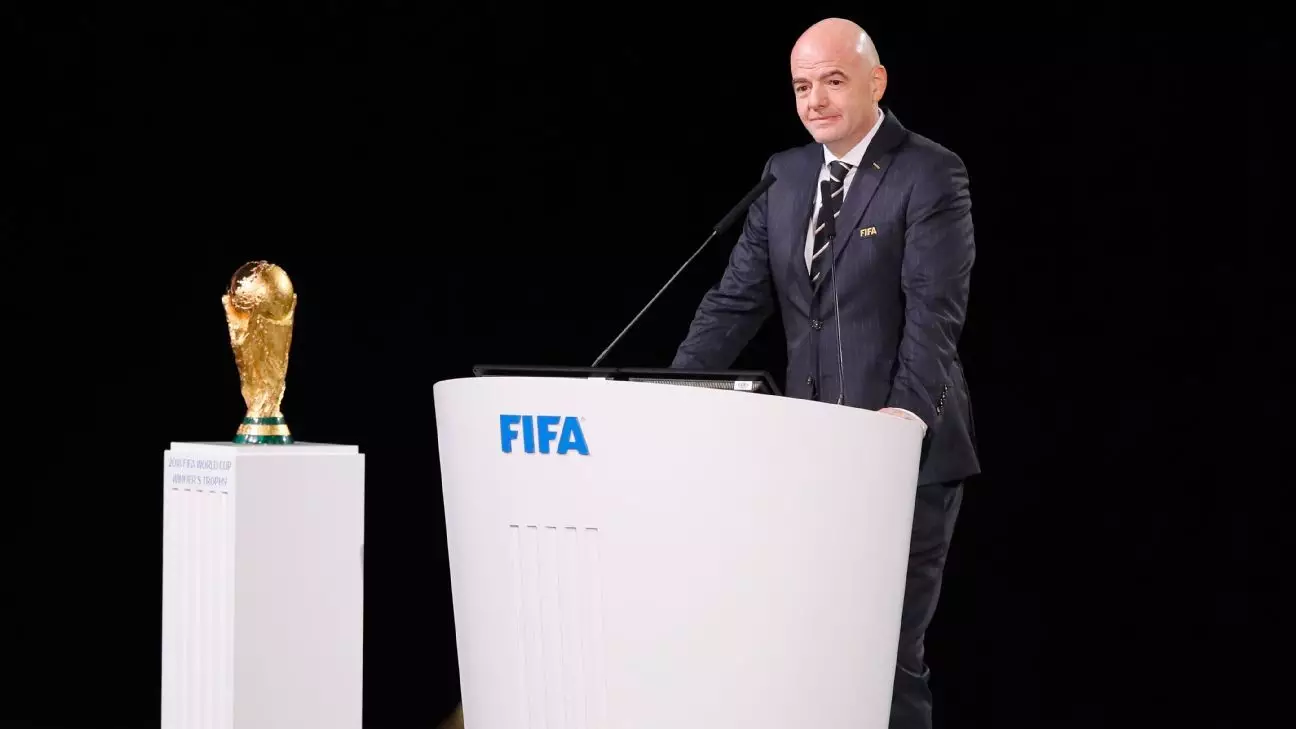In a controversial move, FIFA has announced its plan to drastically increase the number of committees and expert panels within the organization. This decision marks a stark reversal from the governance reform that was implemented in 2016 in response to corruption scandals that rocked the world football body. The proposed increase from seven to 35 standing committees, with the option for President Gianni Infantino to appoint additional panels of experts, has raised concerns about the potential implications for FIFA’s decision-making processes.
The governance reform in 2016 was a response to the corruption scandals that plagued FIFA, leading to the ousting of former President Sepp Blatter in 2015. A 15-member review panel, chaired by Olympic lawyer François Carrard, advised the termination of most of FIFA’s 26 committees to improve efficiency and involve member federations in decision-making processes in a more meaningful way. These reforms were passed at a FIFA congress in February 2016, coinciding with Gianni Infantino’s election as FIFA President.
The proposed expansion of committees, detailed in a draft update of FIFA’s legal statutes, has raised concerns about the potential for patronage and favoritism within the organization. Critics fear that the creation of numerous new bodies could result in the awarding of hundreds of expenses-paid committee seats to football officials worldwide, undermining the principles of transparency and accountability.
One of the key concerns highlighted by the proposed increase in committees is the potential for a return to the patronage system that thrived during Sepp Blatter’s presidency. The creation of new bodies without clear oversight mechanisms could open the door to abuse of power and lack of accountability. Additionally, the decision to dismantle the Anti-Racism and Anti-Discrimination Committee under Blatter, only to introduce a new body in collaboration with a football player, has sparked criticism.
The expansion of FIFA committees raises questions about the organization’s commitment to governance reform and transparency. The decision to delegate decision-making to a select panel chaired by President Gianni Infantino, rather than involving a broader range of stakeholders, has raised concerns about the concentration of power within the organization. The move away from the recommendations of the Carrard-led review panel, such as imposing term limits on FIFA Presidents, further underscores the need for independent oversight and checks and balances.
FIFA’s decision to expand its committees and expert panels represents a significant departure from the governance reform that was implemented in response to corruption scandals. The proposed increase in committees raises concerns about transparency, accountability, and the potential for patronage within the organization. As FIFA prepares to confirm the hosts of the 2030 and 2034 men’s World Cups, it is essential for the organization to prioritize governance reform and uphold the principles of integrity and fairness in its decision-making processes.
